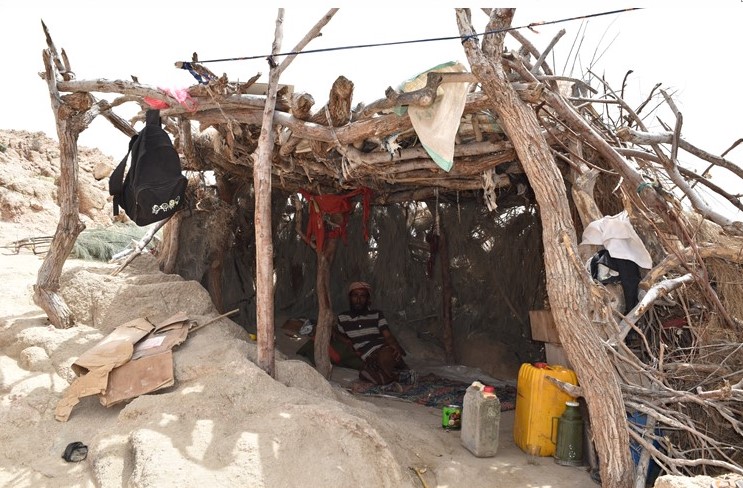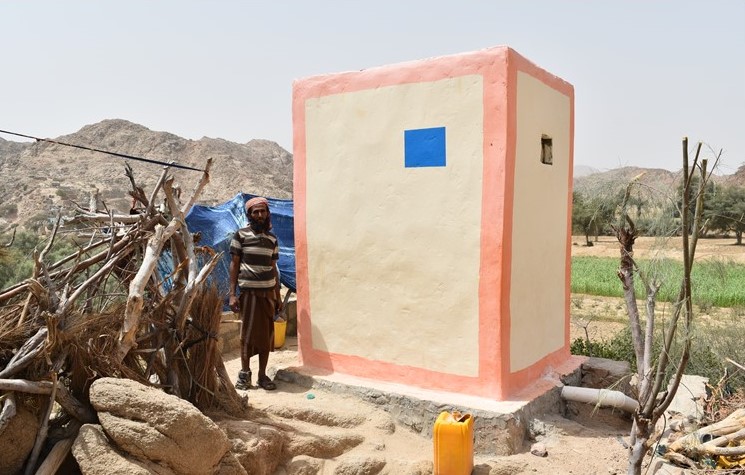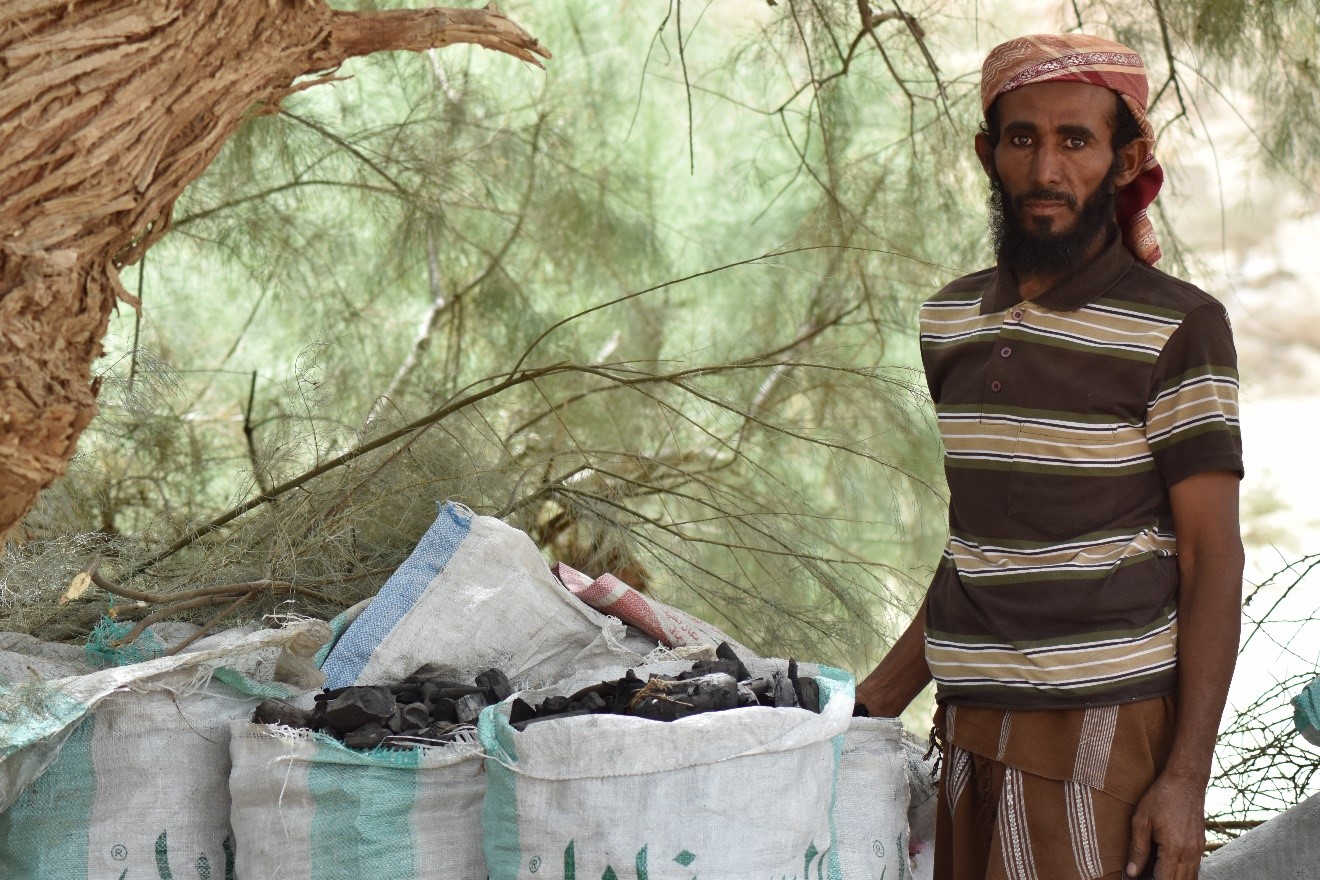“If I had a latrine in my house, I wouldn’t have lost my leg.” says Mohammed Saleh Al-Ribai, a disabled father of six children from Tur Al Bahah district of Lahj governorate in southern Yemen.
When Mohammed was young, he was stung by a poisonous snake while searching for a place to defecate. Due to the absence of nearby health centres, his condition became worse and worse. Two weeks after that incident, Mohammed’s leg was amputated.
“In our village people often go far away to relieve themselves in the open because there are no household latrines. Children and women were exposed to many dangers which caused a problem for the village, and we couldn’t find a solution” He adds.
Like the rest of the villagers, Mohammed ‘s family suffered from different water-related diseases such as Cholera, Diarrhoea, and Malnutrition as a result of consuming contaminated water.
Mohammed explains “My village suffers from poverty and diseases, most of the people here became unemployed due to the war, and diseases spread easily due to a lack of latrines and the awareness of hygiene practices”.
Funded by Dutch Relief Alliance (DRA), CARE’s Yemen Joint Response Project (Phase 5), a one-year program that began in 2019, was designed to decrease epidemic diseases such as Cholera and Diarrhea by improving access to latrines and hygiene awareness, preventing transmission and progression of the diseases, and raising public awareness, by involving the community in cash for work activities.
Through this project, Mohammed received monthly conditional cash (cash-for-work) for six cycles/months. The received cash assistance enables him to build a latrine near his hut and start a micro-enterprise that helped him to improve his income and guarantee a decent life for his family. Mohammed paid off his debts, returned his daughter to school, and finally became able to provide better food for his family.




